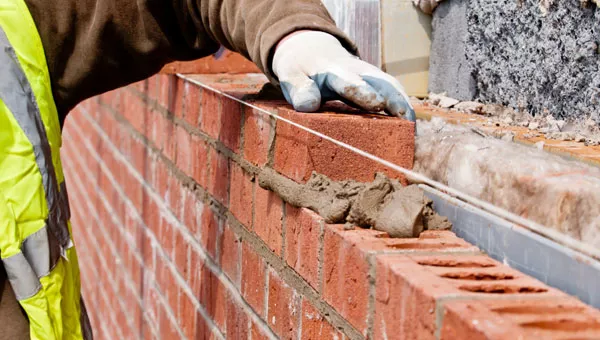Opening the Secrets of Sustainable Stonework Construction Practices for Eco-Friendly Buildings
Among the myriad approaches to green building, lasting stonework construction stands out as a time-tested and durable approach that holds a riches of untapped possibility. From the option of materials to ingenious construction strategies, the keys to attaining sustainability within stonework construction are multifaceted and fascinating.
Advantages of Lasting Masonry Building And Construction
Embracing lasting stonework construction techniques not just decreases ecological effect however additionally supplies long-lasting economic advantages to building contractors and communities. By making use of products like recycled bricks, blocks, and rocks, builders can substantially reduce the carbon footprint of their tasks while promoting resource performance. Additionally, lasting masonry building and construction methods, such as proper insulation and thermal mass buildings, can boost energy performance within buildings, bring about minimized operational expenses in time.
Moreover, the sturdiness and resilience of stonework structures add to lasting financial benefits. Buildings created utilizing sustainable stonework techniques usually need much less maintenance and repair service, equating to cost financial savings for home builders and homeowner. The longevity of masonry products additionally guarantees that frameworks continue to be stable and safe and secure, lowering the requirement for frequent improvements or replacements.
Eco-Friendly Masonry Materials
Utilizing environment-friendly masonry products is a pivotal action towards boosting the sustainability of building techniques and reducing ecological effect while taking full advantage of long-term financial benefits. Lasting masonry products are sourced, created, and made use of in a way that minimizes overall environmental effect. Materials such as recycled bricks, recovered rock, and sustainable cinder block are ending up being significantly popular choices for eco-conscious home builders. Recycled blocks, for instance, not just divert waste from garbage dumps but likewise need less power to produce contrasted to new bricks. Reclaimed rock provides a distinct aesthetic allure while minimizing the need for brand-new quarrying. Lasting concrete blocks incorporate recycled accumulations and may feature enhanced insulation homes, adding to energy effectiveness in buildings.
Furthermore, natural products like adobe, rammed planet, and straw bales supply excellent thermal mass buildings, reducing the requirement for home heating and cooling energy. These products are typically locally offered, advertising regional economies and lowering transportation-related carbon discharges. By picking green stonework materials, building and construction jobs can substantially reduce their ecological footprint and contribute to the development of healthier, a lot more sustainable developed environments.
Energy-Efficient Stonework Techniques
Power effectiveness plays a critical function in enhancing the sustainability of stonework stamped concrete driveway designs building and construction practices. By implementing energy-efficient stonework strategies, building contractors can dramatically lower the total power usage of a building, resulting in lower operational prices and a smaller ecological impact. One key energy-efficient masonry method is using thermal mass, which includes incorporating thick materials like concrete or block into the structure's structure to take in and save warm. This aids regulate interior temperature levels, lowering the need for mechanical home heating and cooling systems.

Technologies in Lasting Stonework
Current developments in sustainable stonework techniques have brought about innovative techniques that are improving the building visit this web-site and construction sector. One such development is the development of self-healing concrete, which utilizes microorganisms embedded within the concrete to recover fractures autonomously. This advancement not only lowers maintenance expenses yet also boosts the resilience of stonework frameworks, adding to their sustainability.
An additional remarkable advancement is making use of recycled accumulations in masonry building and construction - masonry contractor. By integrating materials such as smashed ceramic waste or recycled glass into concrete mixes, builders can minimize the environmental influence of building tasks while preserving architectural stability. This technique not just diverts waste from landfills yet likewise saves natural resources, look at here now making it a key advancement in sustainable stonework building
Moreover, the integration of digital style tools, such as Structure Information Modeling (BIM), is transforming the way stonework frameworks are intended and constructed. BIM allows for more accurate computations, lowered product wastage, and boosted energy efficiency, eventually bring about even more lasting structure practices. These technologies jointly signify an encouraging future for lasting masonry building in the age of environmentally friendly buildings.
Future Trends in Stonework Sustainability
With the cutting-edge strides made in lasting masonry practices, the future patterns in masonry sustainability are poised to additional reinvent the building and construction industry. Among the essential fads shaping the future of masonry sustainability is the enhanced integration of modern technology. Innovations such as Structure Information Modeling (BIM) and online fact simulations are being used to optimize stonework building and construction procedures, bring about reduced material waste and improved energy effectiveness in buildings.
Moreover, the growth of novel sustainable products is set to play a significant role in enhancing the eco-friendliness of stonework building and construction. masonry contractor. Innovations like self-healing concrete, recycled accumulations, and bio-based binders are obtaining grip for their capacity to lessen ecological effect while preserving structural honesty

Conclusion
In conclusion, sustainable stonework building practices use numerous benefits for eco-friendly buildings. masonry contractor. Advancements in lasting masonry are constantly being developed to even more boost the ecological performance of buildings.